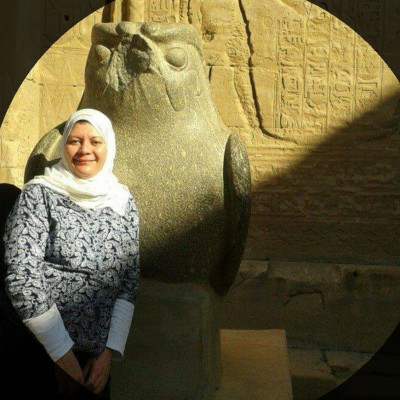Sessions / Computer Assisted Language Learning
Cancelled Embedding Synchronous Formative Assessment in the Virtual Classroom #2958
Moving to a virtual classroom impedes many of the formative assessment strategies that drive an educator’s classroom practices. There is added difficulty in even the simplest classroom monitoring tasks, not to mention the numerous course corrections that are often needed to enable a successful lesson. Many of the coping systems off only a rudimentary substitute for the access to individual student work and collaborative activities that in-person classroom interaction provides. With well-designed tasks and powerful learning management technology, we may be able to gain back much of that access. This presentation will present specific classroom applications of the Microsoft OneNote platform (in combination with Teams) that can provide guidance to create student-centered learning in a virtual environment. It will discuss (1) providing ongoing synchronous feedback to work in progress, (2) creating or re-directing tasks in response to immediately changing student needs, (3) gaining real time access to individual student notebooks, (4) evaluating individual contributions to collaborative tasks. Although these practices and strategies have a profound benefit for the virtual classroom, their use can greatly magnify an educator’s understanding of their student’s needs in standard classrooms as well.
Cancelled A Critical Review of Design Features of LMOOCs #2739
There has been an exponential growth in Language Massive Open Online Courses (LMOOCs) in the past decade. LMOOCs have also become an emergent and topical area of research in CALL, in particular, vis-a-vis learners’ perceptions and experiences. However, not much attention has been paid to analysing the features of LMOOCs. We argue that a systematic investigation of LMOOC design features is vital, especially in light of recent criticisms by some CALL and language education scholars regarding the incompatibility between LMOOC designs and language teaching and learning theories and methodologies. This systematic review, which employs Hall’s (2013) framework of web-based instruction, addresses this gap by analysing instructional and assessment features of 100 LMOOCs on edX and Coursera. The synthesised findings suggest three strengths of LMOOCs: Most LMOOCs are introductory, suitable for beginning language learners (directionality). Most are easy to navigate because of their consistency in format and features. And most employ a range of multimodal instructional materials (multimodality). Three limitations are also identified: There are few opportunities for instructor-learner and learner-learner interaction (interactivity) and learner-centred, formative assessments (accountability). Besides, LMOOCs are designed with a prescribed learning sequence without addressing individual learner differences (adaptability). Based on our analysis, practical suggestions for LMOOC developers are discussed.
Corpus Linguistics: What is it and what can it do for you? #2968
Corpus Linguistics (CL) is a data driven methodology where frequency data is an important source for teachers and learners (Friginal, 2018). CL is mainly used at the level of institutions, publishers, editors, materials writers, researchers, and other specialists. (Bolton, 2010). This is a process and language that is very specialized and dense and is not intended for the language learner / average teacher. It takes a lot of investment in order to come to understand CL, like any technical subject. CL does have a lot of upsides such as making materials more authentic and developing learner autonomy. This presentation will cover some practical examples of what can be done in terms of pedagogical application such as tasks done by students or simply techniques to improve your own teaching. Having different tools and a variety of them can help teachers who have no experience get a good start using CL in the classroom.
Paper to pixels: A decade of EFL journal development #2829
Journal writing is a recognized and much-used tool in language teaching. In the language teaching classroom, it can address multiple needs: target language habituation, student interaction in the target language, provision of authentic materials, facilitation of both peer and instructor review, multimedia communication, multiple study skill integrations, enhancing student motivation, and many more. Journaling has been a component of the first-year courses I teach for over a decade and has been developed and refined through several iterations. This presentation has three distinct foci. First is the succinct elaboration of the language teaching needs the journaling program seeks to meet, followed by a description of the development of this program over time and the reasons why that development was necessary. Finally, there is a practical demonstration of the various modes, methods, and tools in the current OneNote-based journaling system, illustrating how it can be used, and be useful, for both students and educators.
Cancelled Can asynchronous formats be used to develop discussion skills? #2852
With the emergence of the coronavirus pandemic, there was a need in many educational contexts to adapt materials and courses originally intended for face-to-face delivery to online platforms in a limited timeframe. This less-than-ideal scenario led to many educators implementing alternative methods for teaching core spoken-language competencies, such as presentation and discussion skills. However, such rapidly implemented adaptations raised numerous questions as to the efficacy of online, asynchronous formats to facilitate the development of spoken-language skills. Thus, this presentation examines the effectiveness of two asynchronous platforms: (1) written discussion-forums, and (2) an audio-visual platform, VoiceThread. These were adopted to assist in the development of discussion skills among intermediate learners at a Japanese university. Examples of the discussion skills that are the focus of this study include agreeing, disagreeing, and negotiating meaning. Based on a qualitative analysis of the transcripts of both formats, the presentation discusses the relative merits of each platform by comparing the discussion skills used. Overall, the findings indicate that VoiceThread is the more effective platform for developing spoken-language skills, but that the discussion forums allow an easy-to-implement, if limited, alternative. Implications for the use of these platforms as part of a discussion skills course will be discussed.
Using Technology to Teach English Communication for Repeaters #2837
Eight students (n=8) attending a required course called English Communication at one university in Japan were taught during fall AY2020 (i.e., from September 2020) after the instructor reviewed literature from January 2017 to August 2020 on teaching EFL learners who are repeating their courses. When class began in September, the instructor started teaching 15 sessions on Zoom with each session consisting of two 90-minute sessions on Zoom, and took notes after class based on class observation after each session. Based on a synthesis of literature review and notes based on observation, it became evident that (1) a semester-long twice a week 90-minute course based on having students make answers based on open-ended questions can elicit increasingly complex responses from students whose TOEIC scores range from 295 to 345 points in the target language; and (2) having students submit reflections at the end of each class can enable teachers to understand difficulties students are facing with developing their linguistic skills and encourage students to reflect on themselves for personal development. Details of literature review, open-ended questions, and notes based on observation will be presented to help the audience think about ideas that can be applied to their own classes.
EnglishCentral: Moving Beyond from an EdTech Tool to your Personal Virtual Assistant #3288
This presentation is focused on new features, improvements and the future EnglishCentral is heading into, on how it would stimulate further and keep the users engaging with the software tool, while also keeping up with the rapid evolution of technology. The factors that formulated the changes, enhancements and future plans are based on the accumulation of various study-pattern data and feedback from schools and companies that have been regularly using EnglishCentral. Most of the details and information gathered were on increasing or improving the speaking-related features. Better scoring, more about what is spoken in an intelligible English language, and allowing to provide one’s viewpoint on a topic with an assessment through AI or from actual professionals teaching English. Consideration of users’ comments and feedback relating to EnglishCentral has helped build and improve the software tool based on their needs and wants, making sure their learning experience of the English language is productive and effective.
Accuracy of student transcriptions on routine L2 conversations #2839
In an ongoing Kaken-funded research project, an online software was developed that supports learners as they progress through the steps of a group oral discussion task. During the activity, students transcribed their own voices. Later, they were presented with metrics regarding their contributions to the conversation including number of words spoken, number of turns taken, average words spoken per turn, number of words spoken during longest turn, number of pre-selected target words spoken, number of questions asked, and an accuracy percentage based on an automatic speech recognition (ASR) technology. Learners were prompted to use these data for self-assessment and goal setting, while teachers and researchers could access the data for pedagogical and research agendas. Data from a previous study (Author, 2019) using the same task sequence showed growth over time for total words spoken and average turn length. In this presentation, the principal investigator discusses some of the preliminary results gleaned from new research, particularly regarding the accuracy of students’ transcriptions. Attendees interested in using this online software for their own classes or participating in future research projects are offered free access and support.
Using IXL to Supplement English Language Learning #2721
IXL.com is a worldwide online website for learning academic subjects such as English, math, science, etc. Licenses can be purchased for individual students or school groups and there are different international editions to fit the educational curriculum of each country. According to the website, it is currently used by 1 out of 9 students in the United States to supplement school learning or for the purpose of homeschooling. In this workshop, the presenter will first explain how IXL was incorporated into his mandatory English grammar classes for both 1st-year and 2nd-year students at his university, including a thorough demonstration of the website. The presenter has noticed that compared with his ordinary (i.e., non-computer based) English classes, a lot more new vocabulary and grammar patterns have been able to be introduced through the practicing of the different types of skills found on the website. In addition, allowing students to take more control over their learning, including the skill level and pace at which they proceed, has led to a notable increase in student engagement both in class and out. Although IXL can be used for any skill level of English student, its beginner-level phonics skills can be especially of use in helping Japanese students with their pronunciation. This is true for not only university students, but younger children as well. A discussion among participants regarding good online resources that they have utilized in past classes will be conducted if time allows.
Effects of AI Speaking Application on Students’ Speaking and Listening #2907
The emergence of COVID-19 has promoted the wide use of Artificial Intelligence(AI) educational digital tools (Almarzooq et al., 2020), and one example of AI educational digital tools is the automatic scoring application that provides feedback on pronunciation (Fu et al., 2020). Ahn and Lee (2016) found that automatic speech recognition enhances language learning regarding pronunciation and speaking. Improving pronunciation may help English learners improve their listening comprehension. Understanding rules of phonemes and pronunciation is one of the top-down approaches to listening(Flowerdew&Miller, 2005). In order to investigate the effects of one AI application to practice pronunciation and speaking, ELSA Speak, eight university students took training of pronunciation focusing on improvements of phonemes using the application for about 40 days. Before and after the training, they took pre-and post- speaking tests and pre-and post- listening tests. To support students’ ongoing learning, the presenters had students self-and peer-evaluate weekly on an application for mobile phones, LINE, as a part of a cyclical phase of Self-Regulated Learning (Zimmerman, 2010). The results of the post-TOEIC listening test showed that the seven students improved their listening scores though only two students showed improvements on the post-speaking test. The presenters will also discuss whether the self-and peer- evaluation on LINE was helpful for the students to continue studying with the application.
Negotiating Personal Online Policies in International Online Collaboration #2842
The pandemic has accelerated the shift towards online education, and it looks likely that teaching and learning will continue to take place, at least partially, in virtual spaces in a post-pandemic world. As educators, the technical skills of teaching online are not all we need to develop. In the longer term, it is vital that we build our understanding of the social and philosophical implications of lives increasingly lived online. There are negotiations between convenience and security, and shifting rules to navigate for each platform and with each online social group. The lines between work, study, and play often become blurred. As teachers, what can we reasonably ask our students to do? How do we create online spaces in which learners can express themselves without damaging their carefully curated online personas? In this paper, the presenter explores these ideas. In this study, the presenter investigated how a class of English language learners at a Japanese university negotiated online interactions when collaborating with a partner school in the US. The presenter will discuss the ethical implications for anyone working with students online, and outline good practice recommendations for setting up online spaces which language learners can engage in comfortably.
Enhancing Productive Skills through Technology: Mentimeter in the ELT Classroom #2708
Following major setbacks in teaching and learning over the past two years and now engaging in face-to-face teaching post-COVID, one of the major challenges for teachers is to keep students engaged and motivated in order to learn and stay focused in the classroom. On the other hand, teachers in Oman have long been tackling the issue of teaching vocabulary to students in the foundation level English courses. To this end, this study examined the effectiveness of using Mentimeter, a Student Response System (SRS), to enhance vocabulary learning for productive skills in the ELT general foundation program. By using Mentimeter, students can collaborate interactively, yet anonymously, with their teachers and peers through an engaging online platform. This collaborative SRS expands the students’ vocabulary knowledge through a variety of item types, such as word clouds, quiz competition, open-ended questions, and the newest feature, ‘Pin on Image’. An action research was conducted with 50 students using pre- and post-test, questionnaire and semi-structured interviews. The results of this study indicate the beneficial aspects of integrated learning through innovative technological tools to boost students’ performance in productive skills. In addition to boosting vocabulary retention, this technological tool allows students to overcome demotivation and helps teachers to create more effective and interactive lessons to achieve learning and teaching goals. Overall, the implications can be constructive for educators in making use of Mentimeter to enhance students’ vocabulary knowledge.
Nation’s Four Strands and Digital Language Pedagogy with ZenGengo #3252
In recent years, the move toward blended and hybrid forms of language learning has lead many teachers to re-evaluate their digital toolsets. Language teachers in particular need not only a reliable set of tools but also a solid pedagogical framework within which these tools can be put to use. As the old saying goes – it's not just the technology, but what you do with it that counts.
Renowned linguist Paul Nation argues that a well-balanced language course should consist of four strands: meaning-focused input, meaning-focused output, language-focused learning, and fluency development (Nation, 2007).
In this presentation, the developer of ZenGengo, a web-based language teaching and learning platform, will demonstrate how the platform can be used to quickly and easily create activities that correspond with each of Nation's four strands.
The presenter will show how by using ZenGengo, language teachers can not only create more effective and engaging activities for their learners, but also manage their own workloads more efficiently, and ensure that students can always access their course materials whether face-to-face, fully online, or somewhere in between.
Cancelled LLC COIL 101 for University Language Teachers: Two Exemplars #2824
Today’s presentation will focus on Collaborative Online International Learning (COIL), which uses online technology to link geographically separated students in higher education settings. It will focus specifically on two examples of Language Learning COIL (LLC COIL), a subset of regular COIL, and a type of collaboration that strives specifically to support language learning through online joint efforts with other language learners. In a COIL project, teachers create opportunities for their students in any given course to work with peers in a similar university course somewhere else in the world. COIL is not a specific technology or a digital platform; it is a system for collaboration and connection. It is beneficial as it is virtual and therefore financially accessible exchange that can increase mobility and intercultural competence. Conversely, there are many typical obstacles to COIL. They include lack of access to a global partner, not understanding the technology, and a lack of knowledge about good practices. To support new users of COIL the presentation will survey two parallel-run LLC COIL projects from the outset to the finish. Additionally, it will include resources for learning more about where to go for COIL training and for finding a global partner.
Will online TOEIC self-study be better than traditional TOEIC self-study? #2821
The pandemic has forced researchers to explore new avenues for conducting L2 research. Traditional face-to-face instruction to encourage students’ self-study is challenging, particularly for EOP (English for Occupational Purposes) contexts. To explore this problem, this presentation will discuss a study that will explore the application and efficacy of E-Learning as a tool to develop TOEIC proficiency. There are 40 participants in the study, all employed by the Kyoto Police as English translators with TOEIC scores between 450 and 600. The study aims to assess the effectiveness of an E-learning platform to develop TOEIC listening and speaking test scores without any face-to-face interaction. Participants have been placed into two groups, one group will receive traditional self-study guidance and use TOEIC focused textbook “TOEIC L&Rテスト至高の模試600問”and the other group will use a TOEIC L&R focused course created by EnglishCentral that is accessed via a smartphone or tablet. Each group will do a total of 100 hours of self-study over a 3-month period beginning the summer of 2022. This presentation will present the study design, proposed analyses, hypothesized outcomes, and other data-gathering related issues. Feedback and suggestions to improve the study are welcome.
EFL Games with CALL #2654
The CALL SIG Forum this year will be discussing the topics of games, play, and language learning with technology. Speakers in the forum will include: Brian Teaman, Hanaa Khamis, and Brian Gallagher All conference participants are welcome to join the forum and engage with the speakers.
This forum will be closely linked to the JALTCALL 2022 Conference theme of Gameplay and Technology in Langauge Learning. JALTCALL 2022: PLAYFUL CALL Exploring the Intersection of Games and Technology in Language Education Taking inspiration from Zimmerman’s manifesto which proposed the 21st century is the “ludic century,” the focus of the 2022 conference is “Playful CALL” which we interpret as the exploration of play, games, and other ludic approaches to CALL research and practice. https://jaltcall2022.edzil.la/
Students’ (mis?)perceptions about in-class digital game-based learning #2729
Research in computer-assisted language learning has drawn attention to the potential of digital games for language learning and teaching. Even games designed purely for entertainment purposes may contribute significantly to second-language acquisition (Peterson, 2013; Reinhardt, 2019). In this presentation, I will discuss findings from a mixed-methods research project investigating the attitudes of Japanese university students towards digital game-based language learning (DGBLL). A game component was introduced into six separate English communication classes in which learners played a cooperative digital puzzle game in small groups for 15 to 30 minutes per class over a period of 10 weeks. Pre- and post-intervention surveys were administered to gather demographic data and to understand learners’ attitudes towards this pedagogical approach. After the final play session, three learners from each class also participated in a semi-structured focus-group interview. Analysis of the survey data (N = 112) reveals that in general, learners held positive attitudes towards DGBLL and that these positive attitudes were stronger after the game-based learning intervention. However, analysis of the interview data suggests considerable ambivalence towards the approach. While recognising the potential of digital games to facilitate SLA, many learners also seem to view them as a distraction from “serious” and “proper” language learning.
ePortfolio: Using Mahara & Learning Management Systems (LMS) to showcase students' work #2955
In its simplest form, a student portfolio is understood as a collection of resources, including demonstrations, resources, and accomplishments that can represent a student's individual, group, or institutional work. It can illustrate different types of achievement, progress, goals, and future endeavors. While physical portfolios have been around for quite some time, the advancement of portfolios has been increasing in popularity due to their digital presence, especially with the current online climate. As ePortfolios are gaining momentum as a preferred way to demonstrate students' learning and competencies online, it is crucial for educators and institutions to increasingly understand their advantages.
This workshop will address a background of the e-portfolio landscape in relation to a physical portfolio. In addition, a selection of some of the more popular ePortfoilo software, including Mahara, LinkedIn, and WordPress, will be discussed, along with the benefits and challenges of using them. It is hoped that participants will be able to understand the potential and usefulness of having a ready-made portfolio for showcasing.

















